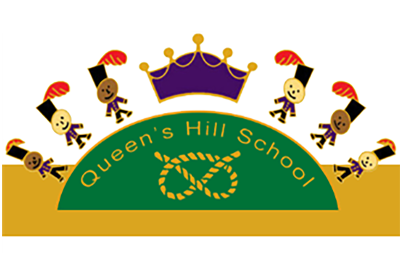Working In Partnership with the UEA

This academic year, we were approached by the University of East Anglia to be a host school on the intensive training and practice (ITaP) programme, a new element in all initial training for teachers.
The ITap programme is designed to provide trainee teachers with opportunities to practise and receive feedback on pivotal aspects of teaching. We hosted three two-day workshops, where forty of the UEA's trainee teachers spent time in our school observing lessons, learning our approaches to teaching and practicing their skills around three key areas: behaviour management, modelling and questioning.
We already had a strong existing relationship with UEA, so this collaboration was a natural next step. The initiative not only supported the development of trainee teachers but also gave our staff a valuable opportunity to reflect on and refine their own practice.
About Queen's Hill Primary
Our school is a large, local-authority maintained primary with over 600 pupils and 90 staff, located on the outskirts of Norwich. We have a growingly diverse range of needs to support across our community, including an increase in pupils with English as an additional language and those with special educational needs. We know that the quality of teaching and learning is one of most important factors which can affect pupil outcomes.
In order to keep this at the forefront of our training, we've developed a school-specific approach to continuous professional development (CPD), grounded in research, which ensures teachers have the time, skills, and training to consistently improve their practice.
As a school we strongly believe in the importance of partnership working, and we are always looking for collaborations which can help us to improve opportunities and widen perspectives both for our staff and students. We already had a positive relationship with the UEA's education department, successfully hosting many students, participating in research opportunities and supporting the delivery of the Early Career Teacher (ECT) programme. When the UEA approached us to be a host school for the new Intensive Teaching and Practice (ITaP) programme, we knew that this was the right opportunity for us to help further refine and reflect on our teaching practices.
Our Approach
We met with staff from the UEA at the start of this academic year to put in place arrangements for the three two-day sessions which were spread over three separate half terms. They ran a training session for our teaching staff to explain the programme, created all of the resources for staff to use, and joined us throughout the sessions to help facilitate. We made some practical adaptations to ensure the days when the trainee teachers were with us had minimal impact on staff and learning. Trainee teachers arrived after all pupils were in school, and we worked with teachers to avoid any lessons or classes where multiple visitors would be too disruptive for pupils.
The trainee teachers were grouped into triads and linked up with a class teacher, where they could observe some of the teaching skills in action, practice the techniques of modelling, questioning and behaviour routines with a live class, and get same-day feedback from both an experienced teacher and their peers.
What we Learned
We have received overwhelmingly positive feedback from staff, trainee teachers, and our partners at the UEA regarding the programme, and it is something we, as a school, are eager to continue in future years.
The programme has encouraged teaching staff to engage in discussions, share ideas, and think critically about their practice. They have also benefited from the opportunity to coach and support trainee teachers through the complexities of teaching. It has also given us an opportunity to showcase our school culture to upcoming new teaching talent, who may be looking for employment in the near future.
Feedback from the trainee teachers tells us that the ITaP programme has provided valuable insights and experience. Below are just some of the many comments we received:
I received some really specific feedback from the teachers, which has been so valuable for reflection and applying in my placement school.
Thank you for the past two days. I have learnt so much about new approaches to modelling and the impact it has on pupils' learning. It's been incredibly beneficial to see it in practice across the school, and it's definitely going to improve my teaching.
Footnote: For any schools interested in finding out more about how this collaboration worked, please feel free to contact me on head@queenshill.norfolk.sch.uk.




